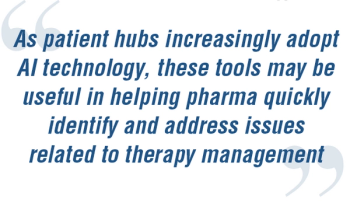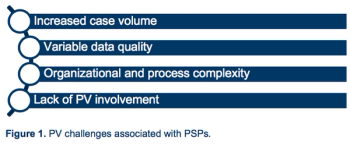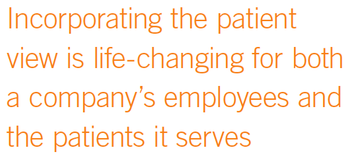
How ramped-up support and educational services have helped bridge the chasms and ease fears along the patient care continuum.
Oral solid dose formulations (OSD) continue to lead the market as a preferred dosage form. To gain better insight into drug dose delivery technology trends, Laura Child spoke to leaders from five top contract development and manufacturing organizations to find out what is on the horizon for patient-centric drug delivery.

How ramped-up support and educational services have helped bridge the chasms and ease fears along the patient care continuum.

A look at best-practice approaches to aligning the strategy and design of hub service models with preparations for market entry of a new therapy.

The role of advanced data technologies in reducing hurdles.

Launching a product soon? Here’s how to think about strategy and design for your patient services program.

A look into the complex battle between pharmaceutical manufacturers and payers for balance between medication access and budget management.

Report highlights how oncology practices are becoming more virtual-oriented in light of the global pandemic.

Pharma companies are in a unique position to support and educate at-risk populations through patient services hubs.

David Logue sees the industry adapting to address medical needs and deliver treatments to patients in ways that afford greater personal empowerment.

Involving patients more meaningfully in the industry's activities means getting more serious about their emotional wellbeing.

While commercial websites can employ analytics to gain better snapshots of their visitors, pharma faces far greater challenges in using technology as a way to track and understand its consumers.

Patient support program providers should incorporate new technologies for more effective processes, but this should be matched with empathy, human connectivity and personalized clinical interventions, writes Tommy Bramley.

Changing customer preferences and a growing need for specialized knowledge are challenging the traditional scope of the medical affairs function. Learn about six ways pharma MA departments can drive more collaborative relationships with caregivers.

Perspectives from big pharma and the rare disease space on how patient advocacy is evolving as a corporate function.

Working group explores the challenges of patient support programs (PSPs) and market research programs (MRPs) for pharmacovigilance (PV) professionals-and solutions currently being put into practice.

Providers of patient service solutions for pharma companies share insights on the nuances of the "consumer' connection and the shifts taking place in making patient-centric programs and tools more alive for patients.

That often-muddled picture is becoming increasingly clearer in the patient and business context as different ways in which patients, patient communities, advocacy, and pharma engage each other converge.

Amicus Therapeutics CEO John Crowley, whose biotech journey and quest to cure two of his kids of a rare genetic disease is well chronicled, discusses the growing role of the patient-centered view in company culture-not just in adding “deeper meaning” to drug development, but in building patient advocacy into everyday business practice and strategy.

Efforts to collaborate around patient engagement in every phase of product development are illustrating the growing relationship between disease advocacy groups and industry.

Benchmark survey assesses the industry’s progress so far in moving from words to action in its approach to patient centricity.

How patient support programs have changed over the past two decades, considering adding safety data collection to the mix, and what regulations are driving pharma to adopt pharmacovigilance.

Hilary Hutton-Squire, Gilead’s UK & Ireland General Manager, talks to Pharm Exec about the company's new "HIV Age Positively" campaign.

The need to look beyond the function’s traditional performance measures to the one that really matters-patient outcomes.

Designing and managing clinical outcome assessments on an international basis is more than a translation task. It requires the more discrete practice of linguistic validation, writes Dana Weiss.

DIA’s global chief executive talks with Pharm Exec about the current trajectory of patient-centric product development and the need to establish common pathways and metrics to best harness its benefits in everyday practice.

Outlining a real-world example in which building and operationalizing a patient- and customer-centric commercialization strategy drove a successful launch from a “standing start.”